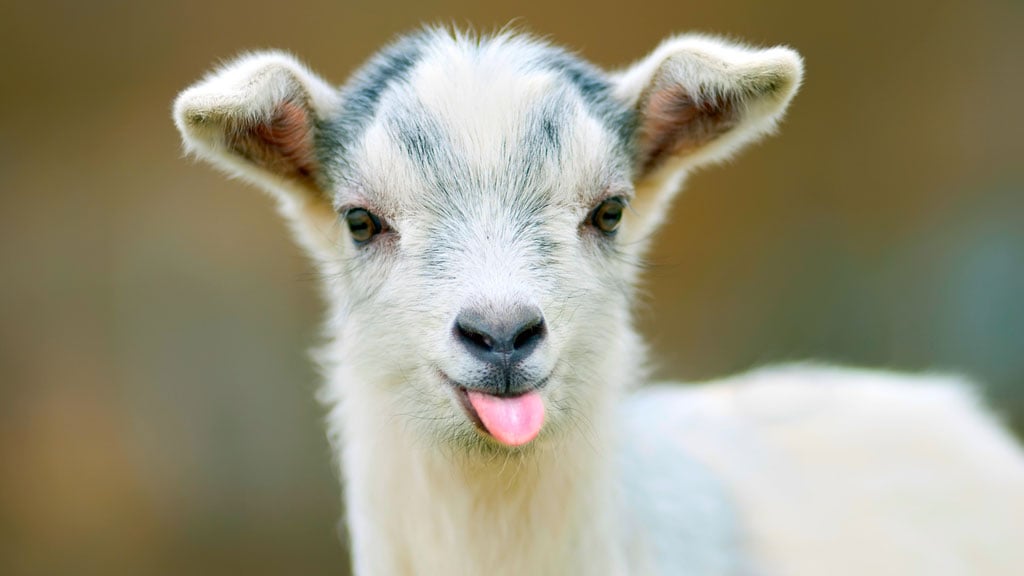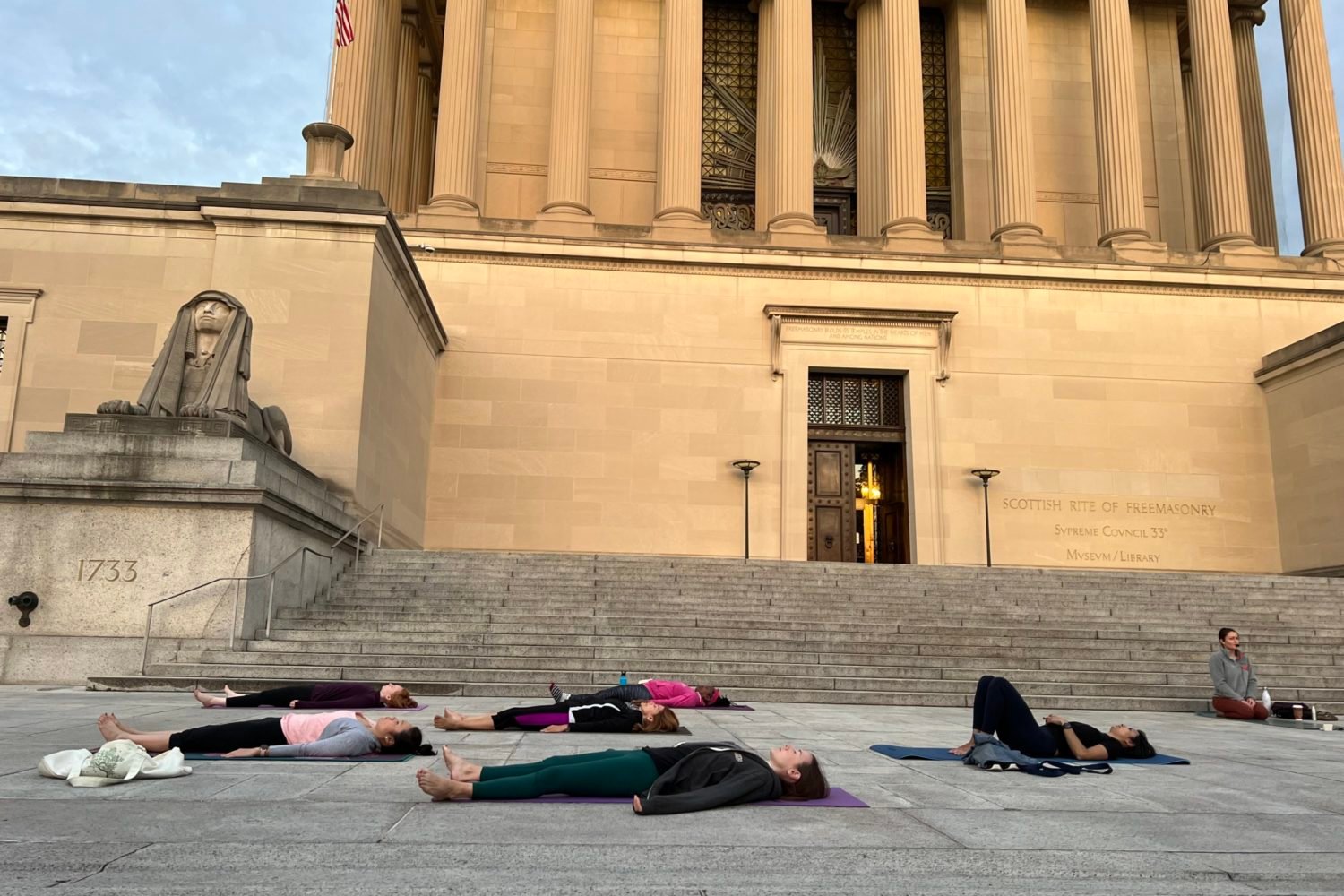When Paul Williams found out about goat yoga, he knew it would be perfect for his cemetery. The president of the nonprofit that runs Congressional Cemetery had spotted the new yoga trend on Facebook and already had a yoga instructor, Kelly Carnes, on staff teaching a regular schedule of classes in the cemetery chapel. All he needed was some goats.
Goat yoga is the latest craze in a long line of themed yoga classes. Available locally at the Little Goat Farm at the Lake in Virginia, goat yoga involves people (not goats) doing yoga, while the playful farm animals amble about.
DC doesn’t exactly resemble farmland, but Williams has had experience hosting goats. On two previous occasions he’d invited in a herd of the animals to help chow down on an overgrowth of poison ivy and other plants as an eco-friendly alternative to lawn mowers. He was able to import the goats by taking advantage of a qualifier to the DC code on permits for “exotic animals,” which states that “exceptions to this law apply for special events and educational purposes.” By adding leaflets and flyers to the event, Williams was able to argue that goats eating ivy was an educational experience.
This was the path he and Carnes took when pitching the July 22 class to the DC Department of Health, with plans to focus the lesson on goats’ unique impressive digestive systems while discussing how yoga can also aid human digestion. The agency didn’t go for it: Executive Director Vito DelVento told him in an email that there was “no opportunity for this event to be considered an educational resource.”
DelVento also pointed out that the interactive goat yoga would be “a violation of a ‘NO TOUCH’ policy by spectators for animals participating in District events.” That policy derives from the section of DC code that states that “the Mayor retains the authority to restrict the movement of any prohibited animal into the District and the conditions under which those movements are made,” and according to the DOH spokesperson Jasmine Gossett, applies to every animal that isn’t on the list of permitted animals. (DC allows most dogs and cats as pets; foxes, poisonous snakes, and goats are “illegal” animals and require a permit.)
Furthermore, DelVento explained in the email, there was a “concern for the safety of the animals should someone fall over on one.”
Gossett notes that when the goats came in to mow, they were separated from observers by a fence. In addition, she says, those goats were adults. Williams and Carnes wanted to bring in ten kid goats from Browsing Green Goats, a goat-rental outfit in Maryland. Baby goats, Gossett says, are more susceptible to injury: “Any time animals come into the District, we want to make sure they are safe and not being put into a position of harm.”
“I find that to be a ridiculous reason to deny the goat yoga at Congressional Cemetery by the health department,” says Mary Bowen, Browsing Green Goats’s owner. “Yoga is a peaceful form of exercise, not an aggressive contact sport.” Another goat farmer, Susanne Marsh, recently told Washingtonian that her goats love taking part in yoga classes.
Williams and Carnes say they’re not giving up on bringing goat yoga to DC, and that they’re continuing discussions with DOH.
“This seems like a clear and easy win for everyone,” says Carnes.




















